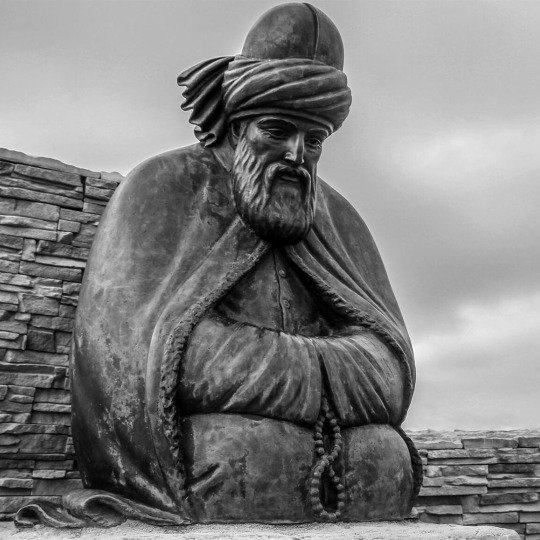Text

“Don’t grieve. Anything you lose comes round in another form.”
— Rumi
107 notes
·
View notes
Text
“In your soul are infinitely precious things that cannot be taken from you.”
— Oscar Wilde
10K notes
·
View notes
Text

“It would be best to sum up the spirit of Gnosticism thus: extending over more than two centuries, it gathers up all the ideas that lingered about the period in order to form an outrageous Christianity, woven from Oriental religions and Greek mythology. But that this heresy was Christian we cannot doubt by a certain raucous resonance that runs through it. It is evil that obsessed the Gnostics. They are all pessimists regarding the world. It is with great ardor that they address a God whom they nevertheless make inaccessible. But Christianity draws from this emotion, incalculable in the face of the divinity, the idea of His omnipotence and of man's nothingness. Gnosticism sees in knowledge a means of salvation. In that it is Greek, because it wants that which illuminates to restore at the same time. What it develops is a Greek theory of grace.
Historically, Gnosticism reveals to Christianity the path not to follow. It is because of its excesses that Tertullian and Tatian check Christianity in its march toward the Mediterranean. It is, to a certain extent, because of Gnosticism that Christian thought will take from the Greeks only their formulas and their structures of thought - not their sentimental postulates, which are neither reducible to Evangelical thought nor capable of being juxtaposed to it but without the slightest coherence. Perhaps it is already clear that Christianity, introduced into the Greco-Roman world at the end of the first century, did not make any decisive development until the milieu of the third century. We understand as well the importance we have accorded to the Gnostic doctrines regarding the evolution we want to recount. Gnosticism shows us one of the Greco-Christian combinations that were possible. It marks an important stage, an experience we could not pass over in silence.” - Albert Camus, ‘Christian Metaphysics and Neoplatonism’ (1936) [p. 86, 87)
39 notes
·
View notes
Text
youtube
#nonduality#nondualism#buddah#mystic#mysticism#mystical#spiritual#spiritual awakening#spiritual growth#Youtube
1 note
·
View note
Text
This video by PhilosophyCorner delves into the parallel between Spinoza's concept of God and the notion of the all-encompassing, divine consciousness referred to as Brahman in Hindu schools, exploring how both Advaita Vedanta and Spinoza converge in embracing a non-dualistic perspective on God and the universe.
youtube
I recommend watching it!
Twitter: @PhilosyCorner
Instagram: @philo.sophy.corner
0 notes
Text
youtube
#mysticism#philosophy#plato#socrates#plotinus#aristotle#buddha#carl jung#john vervaeke#seekers of unity#psychology#meaning crisis#spinoza#perennialists#ontology#soul#mind#Youtube
0 notes
Text
“If you live in harmony with nature you will never be poor; if you live according what others think, you will never be rich.”
— Seneca, Moral Letters to Lucilius
2K notes
·
View notes